Photographs: Reuters Bikash Mohapatra
When Barcelona beat holders Manchester United 2-0 in the Champions League final in Rome on Wednesday, it ensured a lot things. That they won their third title in Europe's top competition; they become the first Spanish club to complete an unprecedented treble; Manchester United's first defeat in the competition in two years, their coach Sir Alex Ferguson's first defeat in a European final [after four straight wins], and the continuation of the 'jinx' that no team has been able to succesfully defend the Champions League.
Besides, it also ensured Barcelona coach Josep 'Pep' Guardiola joined a select band of six coaches who have won the competition, both as player and manager.
There have been 37 managers who had the honour of lifting Europe's most coveted trophy in the last 54 years, 14 of them on two occasions (and the legendary Bob Paisley thrice), but only six have managed it both on and off the field.
Blame it on fortune or the fact that good players essentially don't make good coaches or vice-versa, but the fact remains it is an exclusive coterie (or shall we say club).
Moreover, the richest and most hyped league in the world, the English Premier League, doesn't have a single representative in this elite list, which is dominated by Europe's two other big leagues -- Italy and Spain!
With Guardiola being the latest addition, rediff.com takes a look at this exclusive club and examines what makes the members of it so unique.
Not just 'Pep' talk
Image: Josep GuardiolaPhotographs: Reuters
We start in the reverse order.
Frank Rijkaard's failure to win any silverware for two years in succession meant the Barcelona bosses had to take some quick action to address the issue.
The club president, Joan Laporta, with the full backing of his board, appointed the hitherto untested Josep Guardiola.
And the decision can best be described as an 'unintentional masterstroke'.
In a matter of two weeks, Guardiola brought them triumphs in the King's Cup, the Primera Liga and a third Champions League title.
In doing so, he ensured Barcelona became the first Spanish club ever to win the treble in the same season.
Moreover, Guardiola has also become the youngest ever to guide a Champions League-winning team. He also became only the third man to play for and then manage the same club to glory in Europe.
Guardiola's credentials as a player were impeccable.
In 1992, he had captained Spain to the gold medal at the Barcelona Olympic Games, beating Poland 3-2. And he was a midfielder in Johan Cruyff's Barcelona "Dream Team" of the early 1990s, winning a plethora of titles as a member.
But the huge strides he has taken in his first season in charge are commendable to say the least.
Frank(ly) speaking...
Image: Frank RijkaardPhotographs: Reuters
Frank Rijkaard won the European Cup/Champions League thrice as a player, with Milan (1989-90) and Ajax (1995).
In the 1989 final at Nou Camp, when Milan thrashed Steaua Bucureşti 4-0, Rijkaard played alongside fellow-Dutch players Marco van Basten and Ruud Gullit, both of whom scored a brace.
A year later, against Benfica at Vienna, it was Rijkaard's strike that proved to be decisive.
After five successful seasons in Italy, Rijkaard returned to former club Ajax in 1993 for a two-year spell and in the final game of his career, won the Champions League again, at the expense of his former club (Milan) at Vienna.
Rijkaard was appointed coach of Barcelona in 2003 and in his five-year tenure he led the Spanish giants to their second European triumph in 2006, with a come-from-behind 2-1 win over Arsenal at Paris.
To say Rijkaard followed in Cruyff's footsteps won't be an exaggeration.
After all, he had ensured the Dutch culture, and their attacking brand of football, remained ingrained among the members of the club from the Catalan capital.
The Italian job
Image: Carlo AncelottiPhotographs: Reuters
He might be in the firing line now, with Milan not having won any silverware for a second straight season and talks of Chelsea being interested in him, but Carlo Ancelotti is nevertheless a legend at San Siro.
He played for Milan, in the midfield, from 1987 to 1992 and was part of the legendary squad that won successive European Cups in 1989 and 1990.
On a personal level, his best moment probably was when he received a pass from Dutchman Ruud Gullit, dribbled around two Real Madrid players, and netted a powerful long-range shot during the Rossoneri's 5-0 thrashing of the Spanish side in the 1989 semi-finals.
Milan went on to beat Steaua Bucuresti in that final and then Benfica the following year.
He retured to San Siro as coach in 2001.
And two years later (in 2003), he guided them to Champions League triumph, at the expense of fellow-Italian club Juventus, 3-2 on penalties at Old Trafford.
Under Ancelotti, Milan also lost the 2005 final to English Club Liverpool, 3-2 on penalties after blowing a 3-0 half-time lead.
But in 2007, Ancelotti atoned for the blemish, helping Milan avenge their defeat to Liverpool with a 2-1 win at Athens.
That was Ancelotti's second Champions League trophy as Milan coach and his fourth overall.
And despite all talk regarding his departure from Milan, he remains the longest serving coach in the Italian league till date.
Total football means total triumph
Image: Johan CruyffPhotographs: Reuters
One of the two names synonymous with Total Football, the other being Rinus Michels, Johan Cruyff won most things the game had to offer as player and coach.
As a member of the all-conquering Ajax squad, Cruyff won eight Eredivisie titles (Dutch League), five Dutch Cups and, more importantly, three straight European titles.
The first of those triumphs came at Wembley, at the expense of Greek Club Panathinaikos (2 0). In 1972, twice champions Inter Milan were conquered 2-0 in the final, with Cruyff scoring both goals.
And in the 1972 73 season, with Cruyff as captain, Ajax went on to clinch a third successive title beating Juventus 1-0.
Cruyff played for Barca in the mid-1970s, winning the Spanish League title in 1974.
After retiring, Cruyff began his career as coach at Ajax, leading them to victory in the European Cup Winners' Cup in 1987.
In 1988, he returned to Barcelona as manager.
And then started a glorious run. Cruyff brought in players such as Gheorghe Hagi, Hristo Stoichkov, Michael Laudrup, Romario, Ronald Koeman and Josep Guardiola and led Barcelona to four straight league titles between 1991 and 1994 as well as wins in the 1989 European Cup Winners' Cup final and the 1992 European Cup final at Wembley, both at the expense of Italian side Sampdoria.
The last being Barcelona's first triumph in the competition in three attempts.
Been there, won that
Image: Giovanni TrapattoniPhotographs: Reuters
Arguably the most successful coach in the history of football, Giovanni Trapattoni was also a good footballer.
He was part of Nereo Rocco's magnificent AC Milan side that became the first Italian club to win the European Cup in 1963, beating two-time defending champions Benfica 2-1.
The team went on to repeat the feat six years later, at the expense of a young Ajax squad managed by the legendary Rinus Michels.
As a defender, Trapattoni's main job was passing the ball accurately to players of the caliber of Dino Sani and Gianni Rivera.
After hanging up his boots in 1972, Trapattoni coached Milan's youth team before moving to Juventus in 1974.
With Juve, Trapattoni won all club competitions.
Coming into the final of the European Cup in 1985 against Trapattoni had already tasted success with Juve, winning the now UEFA Cup (1977) and the now defunct Cup Winners Cup (1984).
And a Michel Platini penalty ensured Juve their maiden European Cup besides helping Trapattoni complete his trophy collection.
Till date, the Italian remains the only manager to have won all UEFA club competitions and the Intercontinental Cup.
He is also one of only two coaches, alongside the legendary Austrian Ernst Happel, to have won the league title in four different countries (Italy, Germany, Portugal and Austria).
First among equals
Image: Miguel MunozHe began the trend so to speak.
Miguel Munoz was the first person to achieve the feat and his achievements coincided with the glorious years of Real Madrid.
Mu oz won as a player thrice, in 1956, 1957 and 1958, and as manager in 1960 and 1966.
And the midfielder's contribution to the Meringues' cause was significant.
From someone who had scored the club's first ever goal in the European Cup (against Servette FC) in September 1955, Munoz went on to captain the Real teams that won in 1956 and 1957.
He was appointed coach of the Madrid team in 1959 and in the next year (1960), Munoz led his team to their fifth straight European triumph, a 7-3 thrashing of German side Eintracht Frankfurt, thereby becoming the first person to win the competition both as a player and a coach.
Under his tutelage, Real Madrid emerged as the team to beat, dominating the Spanish League, winning nine times, including five-in-a-row from 1961 to 1965.
In 1966, he won his second European title as a coach when Real Partizan Belgrade 3-1.
Interspersed in between were two final losses in the same competition to Benfica in 1962 and to Inter Milan in 1964.
Munoz went on to coach the Spanish national side to the final of the Euro 1984.

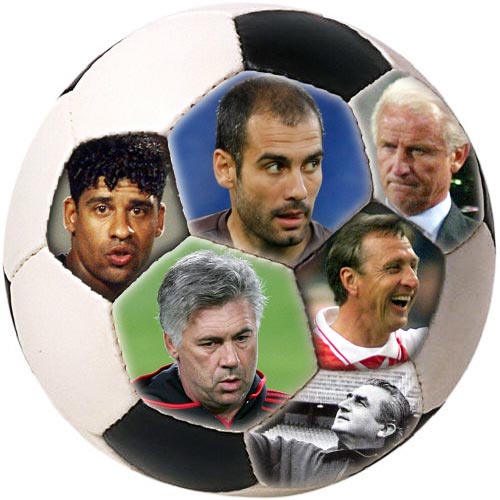
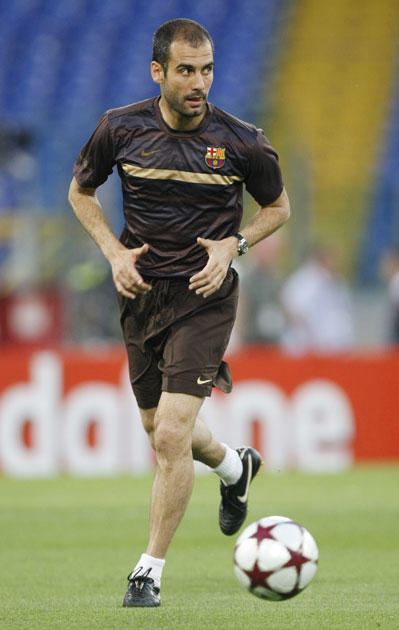
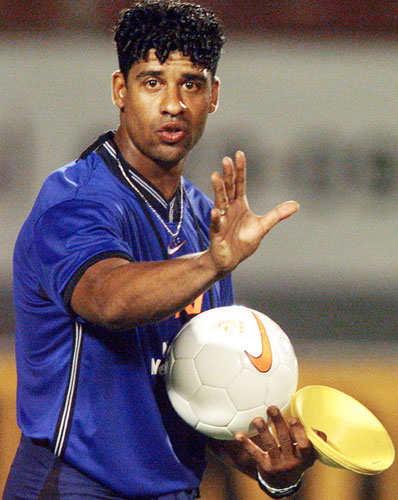
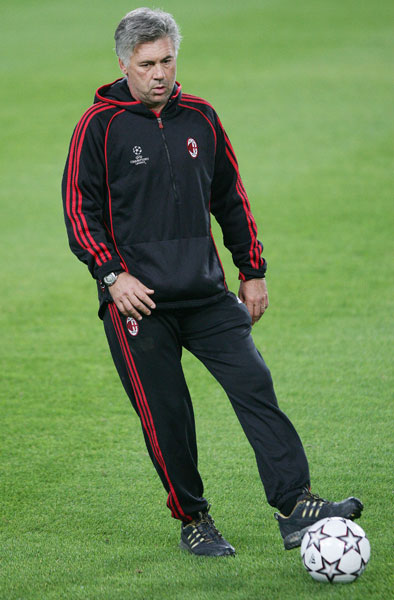
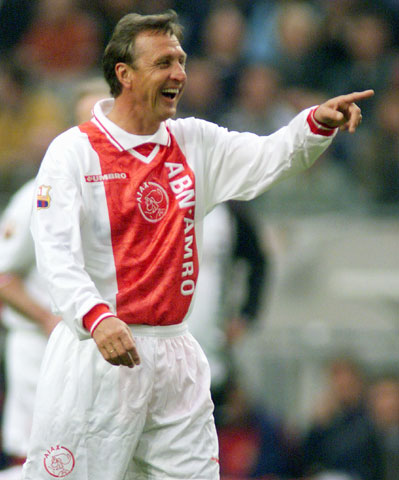
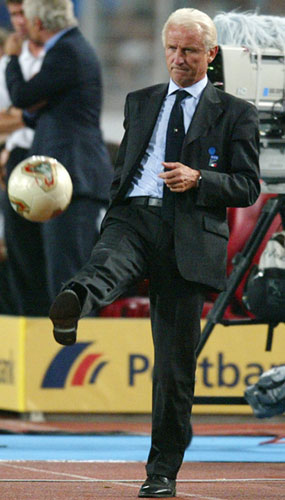
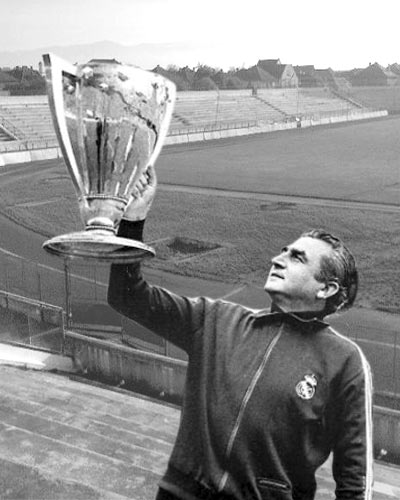
Comment
article